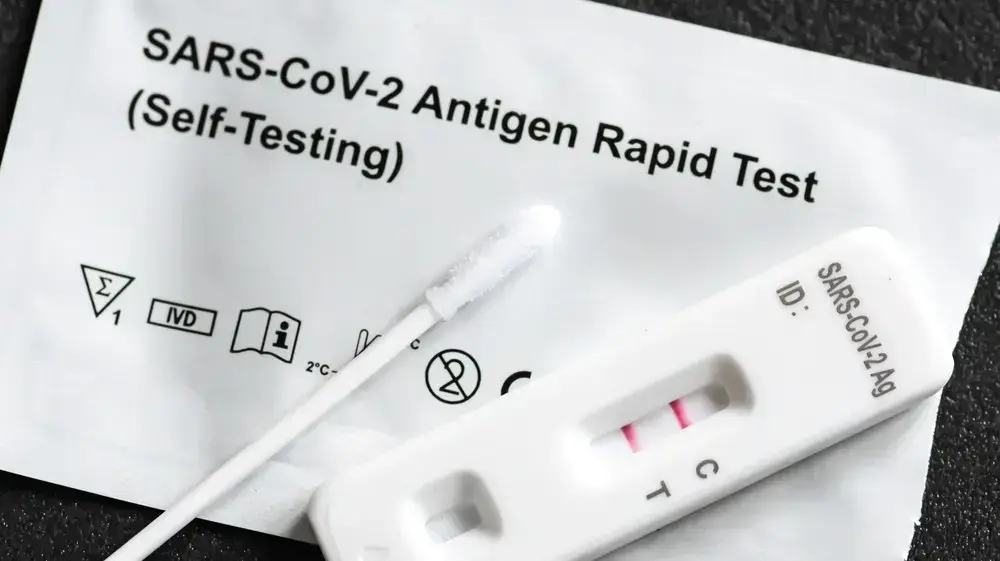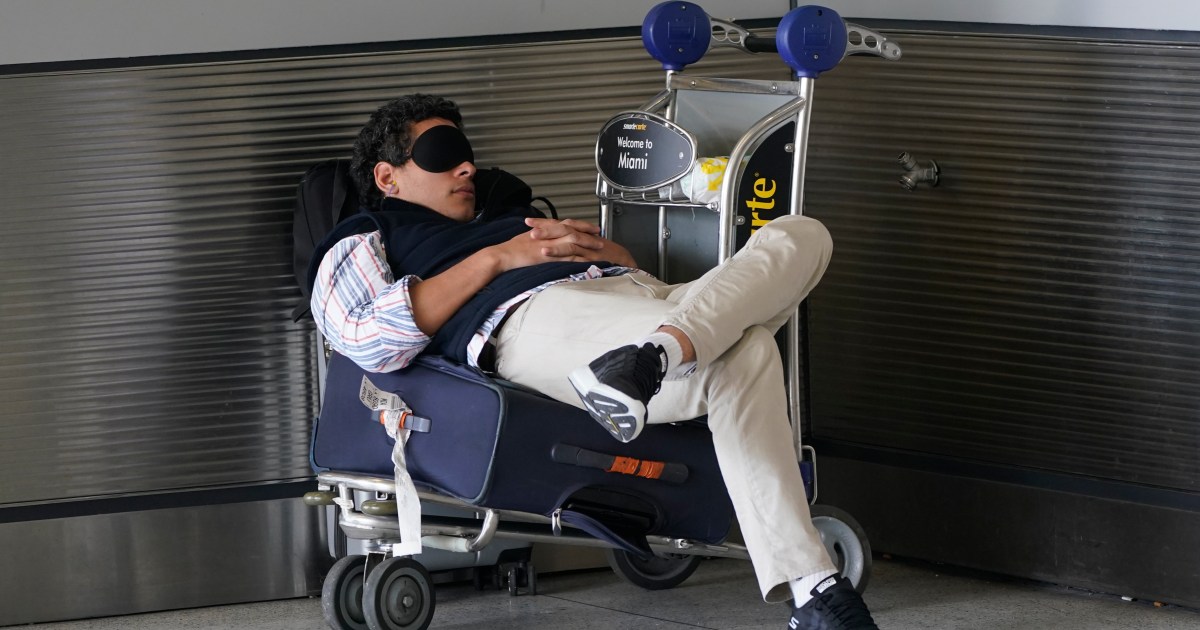- Click to share on Facebook (Opens in a new window)
- Click to share on Twitter (Opens in a new window)
- Click to share on LinkedIn (Opens in a new window)
- Click to email a friend (Opens in a new window)
Monoclonal antibodies, the hope of scientists 2:37
(CNN) - Imagine that you are about to have a blood test to see if you have been exposed to covid-19, the deadly disease caused by the new coronavirus.
You hope the test says yes, you've been exposed, right? That your blood is full of beautiful antibodies, the soldiers called to fight when a known enemy invades our systems again.
You may dare to hope that the discovery of antibodies in your blood means that you will be immune to the virus in the future; that you will never get it again or pass it on to anyone else.
That is the holy grail, of course, the ticket to freely visit your parents, friends and loved ones again, to go back to work in the office again: basically, to get your life back.
But no. Not so fast. It is not that simple.
- Researcher Says Antibody Tests Against Coronavirus Have "Really Terrible" Accuracy
In today's reality, tests that test positive for antibodies to covid-19 don't mean any of that. In fact, it may not mean much, at least at the moment.
There are still too many unknowns, both about the accuracy of the available antibody tests and about the nature of the virus itself.
“It is clear that we are not yet where we need to be. It is a brutal truth, but it must be said, ”CNN chief medical correspondent Dr. Sanjay Gupta said in the May 5 episode of his podcast“ Coronavirus: Reality vs. Fiction".
"And this is exactly why I continue to advise people to behave as if they have the virus," said Gupta.
- Antibody tests could lead to job discrimination and encourage workers to play 'Russian roulette'
What is an antibody test?
An antibody test can only be administered by collecting blood, either through a finger prick or a vein. It is designed to detect antibodies, the Y-shaped proteins called immunoglobulins that circulate in our blood to help fight infection in our bodies.
Produced by white blood cells, the two "arms" of the antibody are designed to recognize and fight bacteria and viruses that have been found in the past, therefore hopefully to prevent these germs from taking root again.
Even if you have never had any symptoms of covid-19, the presence of antibodies in your blood would show that your body has found the virus.
To be clear, antibody tests are not "swab" tests that are intended to determine if you are currently a carrier of the virus. So-called rt-PCR tests, or molecular diagnostic tests, generally collect mucus from the nose or the back of the throat. It usually takes a few days to report the results.
- Coronavirus vaccines and antibody tests: what we know about the status of treatments for covid-19
There are dozens of such tests in use or being developed in the United States at the moment, but few are highly accurate. That means they can fail to detect an active virus, creating a false sense of security.
A recent but unpublished study of five diagnostic tests commonly used by the Cleveland Clinic found that 15% delivered false negatives. In China, a study found that the number of false negatives was almost 40%.
Nor are the antibody tests similar to the recently approved antigen test for emergency use by the US Food and Drug Administration last week. That diagnostic test, also performed through a nasal swab, can report results more quickly than rt-PCR tests, but it is not as sensitive, meaning it will be even more likely to lose accuracy to detect covid. -19.
Also, antigen and rt-PCR testing can only give a “snapshot” of your condition at that specific time. If you were exposed to covid-19 the next day, you could easily get sick and not know it.
- Abbott's rapid tests can produce false negatives under certain conditions, according to the company.
How accurate is the antibody test?
First, let's look at the time. Antibodies just don't show up overnight. It can take weeks to accumulate a sufficient level in the blood to be detected by even the most sensitive test. So if you get tested before your body has fully responded, it can give you a false negative.
That if you develop antibodies.
To understand that, consider the whole concept behind vaccines. Vaccines are supposed to give enough living or dead viruses for the body to develop an immune response, but not enough to make you sick.
But each person is different. Some people do not react to the vaccine at all, or their immune response is not fast or adequate enough to protect it.
Antibody tests are also riddled with errors. Like diagnostic tests, "antibody tests have not been as accurate as they should be," said Gupta. By their very nature, such tests can easily produce false negatives and positives.
"With the antibody test, what you really hope to avoid is a false positive," said Gupta. "So someone might feel like they have the antibodies, feel like they're protected, go out into the community, go to a hospital, a nursing home, and spread the virus."
The tests should also be able to differentiate between past SARS-CoV-2 infections and the other known set of six human coronaviruses, four of which cause the common cold and circulate widely.
Then there is the lack of supervision. The need for evidence has created a free market for everyone in which companies are creating evidence without any scientific oversight.
"There are many antibody tests that have not been reviewed or validated by the United States Food and Drug Administration. It has been a big problem, "said Gupta.
According to the FDA, more than 130 unwanted antibody tests are currently in use, along with dozens of diagnostic tests. The agency recently announced that it was tightening its policy to prevent unsubstantiated and even fraudulent evidence from entering the market by requiring commercial test manufacturers to meet new accuracy standards and submit information that proves the quality of evidence.
If I have antibodies against covid-19, will I be immune?
Of course, the big question is: if your blood shows antibodies against covid-19, are you immune to the virus if you are exposed to it in the future? Scientists hope that is the case, as it has historically been true for other viruses such as chickenpox and polio.
But so far, there is no evidence of that with SARS-CoV-2.
"It is not clear if those antibodies can provide protection," say the US Centers for Disease Control and Prevention. on their website. "This means that we don't know at this time if the antibodies make you immune to the virus."
The World Health Organization is more direct. In late April, the WHO released a scientific report that said: "There is currently no evidence that people who have recovered from covid-19 and have antibodies are protected from a second infection."
While studies of blood samples taken from people who have recovered from covid-19 show an immune response to the virus, some have "very low levels of neutralizing antibodies in the blood," the WHO said.
Immunity may need to be produced at the cellular level, as well as through antibodies circulating in the blood, the agency warned.
"The body also produces T cells that recognize and kill other cells infected with the virus. This is called cellular immunity, "the WHO explained.
Along with antibodies, the "combined adaptive response can eliminate the virus from the body and, if the response is strong enough, can prevent progression to severe disease or reinfection with the same virus," the WHO said.
But consider this: Even if we are lucky to have that happen, we still don't know how long that immunity will last.
Covid-19: How to study the phenomenon of reinfection? 1:11No 'immunity passport' yet
What is the conclusion of your antibody test results? Simply put, it doesn't really matter if your result is positive or negative, because until the tests improve and we learn more about the virus, you (and everyone else) are still at risk.
"At this point in the pandemic, there is not enough evidence on the effectiveness of antibody-mediated immunity to warrant the accuracy of a 'immunity passport' or 'risk-free certificate,'" WHO said.
Antibodiescovid-19












/cloudfront-eu-central-1.images.arcpublishing.com/prisa/KMEYMJKESBAZBE4MRBAM4TGHIQ.jpg)

